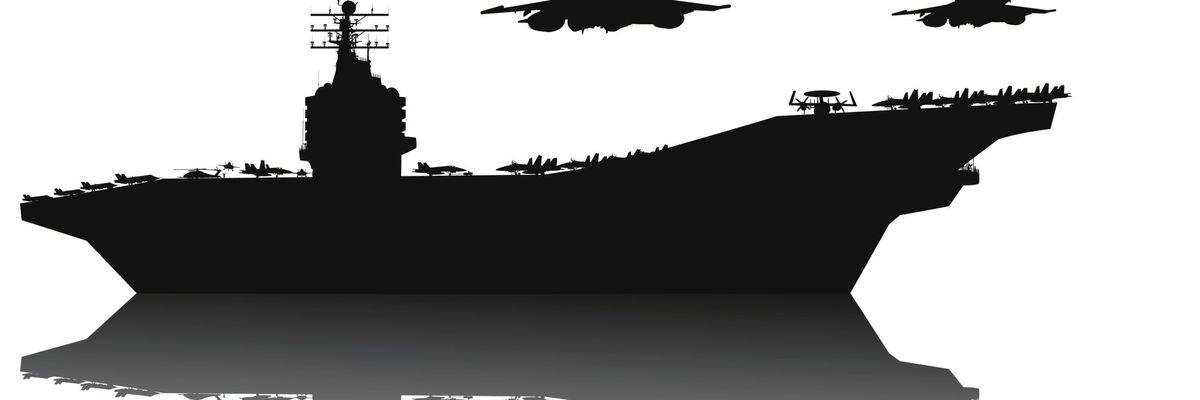This morning, the Pentagon announced plans to escalate U.S. military involvement in two different international conflicts: the Saudi-led war in Yemen, and the Ukraine crisis.
President Biden is deploying 3,000 troops to NATO partners in Eastern Europe, and the Pentagon is sending additional fighter jets and a missile destroyer to the UAE.
Simultaneously escalating U.S. military involvement in two different conflicts halfway around the world is a self-evidently terrible idea — but don’t just take my word for it! As QI expert Annelle Sheline explains, escalating U.S. military involvement in Saudi Arabia’s war in Yemen is likely to exacerbate tensions and forestall efforts to reach a peaceful resolution to a war that has led to the deaths of nearly 400,000 Yemeni civilians. And as QI expert Anatol Lieven writes, putting 3,000 U.S. troops in Eastern Europe is “empty posturing” that’s likely to further inflame tensions with Russia when productive diplomacy is desperately needed.
At best, escalating the U.S. military’s involvement in these conflicts will do little to resolve them; at worst, increased U.S. involvement risks dramatic escalations that could quickly spiral out of our control.So why the hell are we escalating anyway — despite the protestations of Republican and Democratic lawmakers and the American people’s clear preference for vigorous diplomacy, not war?
Blame it on America’s hyper-militarized foreign policy. Despite decades of failed military adventures, most American leaders still reflexively attempt to solve every problem, everywhere, with a military solution. As the adage goes, when you’ve got a hammer, everything looks like a nail — and America’s $778 billion defense budget is one big, expensive hammer.
This year, America will spend more than twelve times as much on warfighting as we do on diplomacy. It’s no wonder that our foreign policy apparatus constantly tilts toward war: the only possible way to justify this massive, bloated defense budget is by using it. This requires inflating the threats America faces and “solving them” through the projection of military force — regardless of if doing so actually addresses the problem at hand.
After all, if we weren’t constantly engaging in new military conflicts, the American people (and their representatives in Congress) might start asking some difficult questions about why our government spent more than a trillion dollars building a plane that can’t seem to fly while real threats to American safety — like COVID-19, climate change, or lack of access to clean water — go largely unaddressed.
As my colleague Bill Hartung says, “Part of the military’s job is to perpetuate itself.” And so President Biden sends new planes and ships into a war that, a year ago, he pledged to end, and we station new troops on the edges of a conflict with a rival nuclear-armed power — despite history’s clear and dangerous lesson that it's terribly easy to stumble our way into war.
Trying to solve every problem through military force will inevitably lead to yet another disaster — as it did in Iraq, Libya, Vietnam, and beyond. And while the innocent civilians caught up in America’s wars of choice will likely pay the steepest price, Americans themselves will continue to pay dearly for our over-militarized foreign policy, too; as Dwight D. Eisenhower said, “Every gun that is made, every warship launched, every rocket fired signifies, in the final sense, a theft from those who hunger and are not fed, those who are cold and are not clothed.”














